Great Scott!

This evening, I stumbled onto copies of the works of one of my favorite authors: F. Scott Fitzgerald online at the University of Adelaide's eBooks@Adelaide.



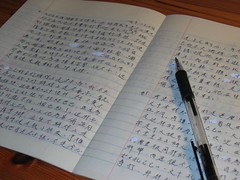
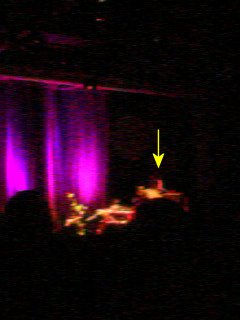
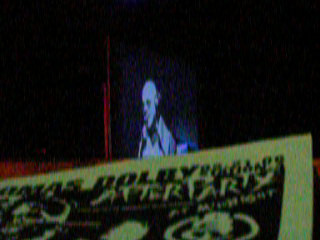
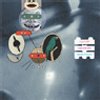


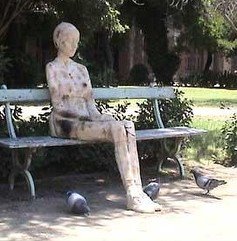



 "There are many who find the burdens, the anxiety, and the isolation of an individual existence unbearable. This is particularly true when the opportunities for self-advancement are relatively meager, and one's individual interests and prospects do not seem worth living for. Such persons sooner or later turn their backs on an individual existence and strive to acquire a sense of worth and a purpose by an identification with a holy cause, a leader, or a movement. The faith and pride they derive from such an identification serve them as substitutes for the unattainable self-confidence and self-respect."
"There are many who find the burdens, the anxiety, and the isolation of an individual existence unbearable. This is particularly true when the opportunities for self-advancement are relatively meager, and one's individual interests and prospects do not seem worth living for. Such persons sooner or later turn their backs on an individual existence and strive to acquire a sense of worth and a purpose by an identification with a holy cause, a leader, or a movement. The faith and pride they derive from such an identification serve them as substitutes for the unattainable self-confidence and self-respect."





"As I step onto the polished wood floor of the peaceful Chinese country house, a fountain gurgles softly and a light breeze stirs the scarlet curtain in a doorway. Clad in a stylish blue-and-purple dress, Anshe Chung waves me to a low seat at a table set with bowls of white rice and cups of green tea. I'm here to ask her about her booming land development business, which she has built from nothing two years ago to an operation of 17 people around the world today. As we chat, her story sounds like a classic tale of entrepreneurship...
Except I've left out one small detail: Chung's land, her beautifully appointed home, the steam rising from the teacups -- they don't exist."
(via Reuben Steigers).

"He is free who lives as he wishes to live; who is neither subject to compulsion nor to hindrance, nor to force; whose movements to action are not impeded, whose desires attain their purpose, and who does not fall into that which he would avoid. Who, then, chooses to live in error? No man. Who chooses to live deceived, liable to mistake, unjust, unrestrained, discontented, mean? No man. Not one then of the bad lives as he wishes; nor is he, then, free. And who chooses to live in sorrow, fear, envy, pity, desiring and failing in his desires, attempting to avoid something and falling into it? Not one. Do we then find any of the bad free from sorrow, free from fear, who does not fall into that which he would avoid, and does not obtain that which he wishes? Not one; nor then do we find any bad man free."
 "The human understanding when it has once adopted an opinion (either as being the received opinion or as being agreeable to itself) draws all things else to support and agree with it. And though there be a greater number and weight of instances to be found on the other side, yet these it either neglects and despises, or else by some distinction sets aside and rejects, in order that by this great and pernicious predetermination the authority of its former conclusions may remain inviolate. And therefore it was a good answer that was made by one who, when they showed him hanging in a temple a picture of those who had paid their vows as having escaped shipwreck, and would have him say whether he did not now acknowledge the power of the gods — 'Aye,' asked he again, 'but where are they painted that were drowned after their vows?' And such is the way of all superstition, whether in astrology, dreams, omens, divine judgments, or the like; wherein men, having a delight in such vanities, mark the events where they are fulfilled, but where they fail, though this happen much oftener, neglect and pass them by. But with far more subtlety does this mischief insinuate itself into philosophy and the sciences; in which the first conclusion colors and brings into conformity with itself all that come after, though far sounder and better. Besides, independently of that delight and vanity which I have described, it is the peculiar and perpetual error of the human intellect to be more moved and excited by affirmatives than by negatives; whereas it ought properly to hold itself indifferently disposed toward both alike. Indeed, in the establishment of any true axiom, the negative instance is the more forcible of the two."
"The human understanding when it has once adopted an opinion (either as being the received opinion or as being agreeable to itself) draws all things else to support and agree with it. And though there be a greater number and weight of instances to be found on the other side, yet these it either neglects and despises, or else by some distinction sets aside and rejects, in order that by this great and pernicious predetermination the authority of its former conclusions may remain inviolate. And therefore it was a good answer that was made by one who, when they showed him hanging in a temple a picture of those who had paid their vows as having escaped shipwreck, and would have him say whether he did not now acknowledge the power of the gods — 'Aye,' asked he again, 'but where are they painted that were drowned after their vows?' And such is the way of all superstition, whether in astrology, dreams, omens, divine judgments, or the like; wherein men, having a delight in such vanities, mark the events where they are fulfilled, but where they fail, though this happen much oftener, neglect and pass them by. But with far more subtlety does this mischief insinuate itself into philosophy and the sciences; in which the first conclusion colors and brings into conformity with itself all that come after, though far sounder and better. Besides, independently of that delight and vanity which I have described, it is the peculiar and perpetual error of the human intellect to be more moved and excited by affirmatives than by negatives; whereas it ought properly to hold itself indifferently disposed toward both alike. Indeed, in the establishment of any true axiom, the negative instance is the more forcible of the two."
